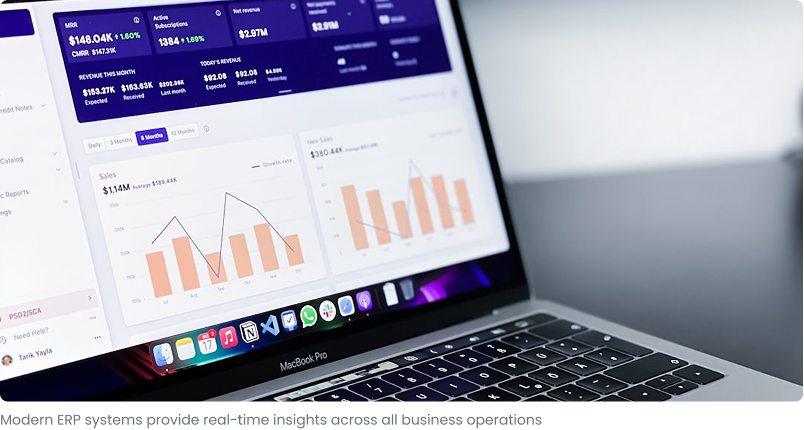Israr Ahmed
Apr 23, 2025 • 8 min read

Improve your real estate society's operations with an ERP system. Simplify management, track finances, and enhance resident satisfaction easily.
Real estate society management involves overseeing several complex operations: managing property records, processing payments, coordinating maintenance, handling complaints, and interacting with residents. Traditionally, this has been done through manual processes, resulting in inefficiencies, increased errors, and poor communication. Today, however, the digital age has introduced ERP systems as game changers in how these societies manage their operations.
Before the introduction of ERP systems, societies faced numerous challenges, often leading to operational bottlenecks and frustrated residents:
ERP module designed specifically for real estate combines all the essential functions into one system—offering an end-to-end solution for managing daily operations. From resident data and maintenance tracking to financial reports and communication, this module ensures a seamless experience for both admins and residents.
| # | Feature | Description | Benefits |
|---|---|---|---|
| 1 | Resident & Unit Management | Digitally maintain records for all residents, owners, and tenants; track unit specs, ownership history, and membership details; create auto-generated lists for targeted communication. |
|
| 2 | Maintenance Billing & Dues Management | Automatically generate monthly maintenance bills (by flat size, fixed charges, or consumption); residents can view and pay online with reminders to reduce defaults. |
|
| 3 | Plot and Allotment Management | Maintain detailed records of plot allotments, ownership transfers, and registry details; integrate with a visual society map for quick tracking. |
|
| 4 | Facility Booking & Management | Residents can book community halls, parks, and sports facilities online; admins track usage, availability, and payments in real time. |
|
| 5 | Complaint & Helpdesk System | Residents file complaints via mobile or web; tickets auto-assign to relevant teams/vendors and escalate if unresolved. |
|
| 6 | Vendor & Contractor Management | Onboard vendors, manage contracts and payments, track work completion and compliance with AMCs. |
|
| 7 | Accounting & Financial Reporting | Maintain ledgers and balance sheets, integrate with banking for reconciliation, and generate GST/tax-compliant invoices and reports. |
|
| 8 | Communication & Notices | Send SMS, email, and app notifications; schedule and manage community meetings; circulate digital notices and minutes. |
|
| 9 | Gate Pass & Visitor Management | Enable digital check-ins/outs for visitors and deliveries with OTP-based verification and coordinated security monitoring. |
|
Improved clarity in finances and maintenance builds trust.
Automation reduces time spent on administrative duties.
Residents stay informed; feedback is efficiently collected.
Real-time dashboards and analytics enable smarter choices.
Grows with data, residents, and properties.
With the increasing demand for digital services in residential communities, adopting an ERP system is no longer a luxury but a necessity. A real estate ERP helps you manage all aspects of your community efficiently—improving engagement, controlling costs, and elevating residents' quality of life.
As communities grow, operational complexity increases. ERP bridges the gap, creating a seamless digital workflow that integrates people, processes, and property, enabling a secure and responsive living environment.
Israr Ahmed
HR Technology Specialist at SA Systems
Israr specializes in HR technology solutions and digital transformation strategies for modern enterprises.
 ERP
ERPMarch 15, 2025
 ERP
ERPFebruary 28, 2025
.png) ERP
ERPJanuary 20, 2025
.png) Real Estate
Real EstateDecember 10, 2024